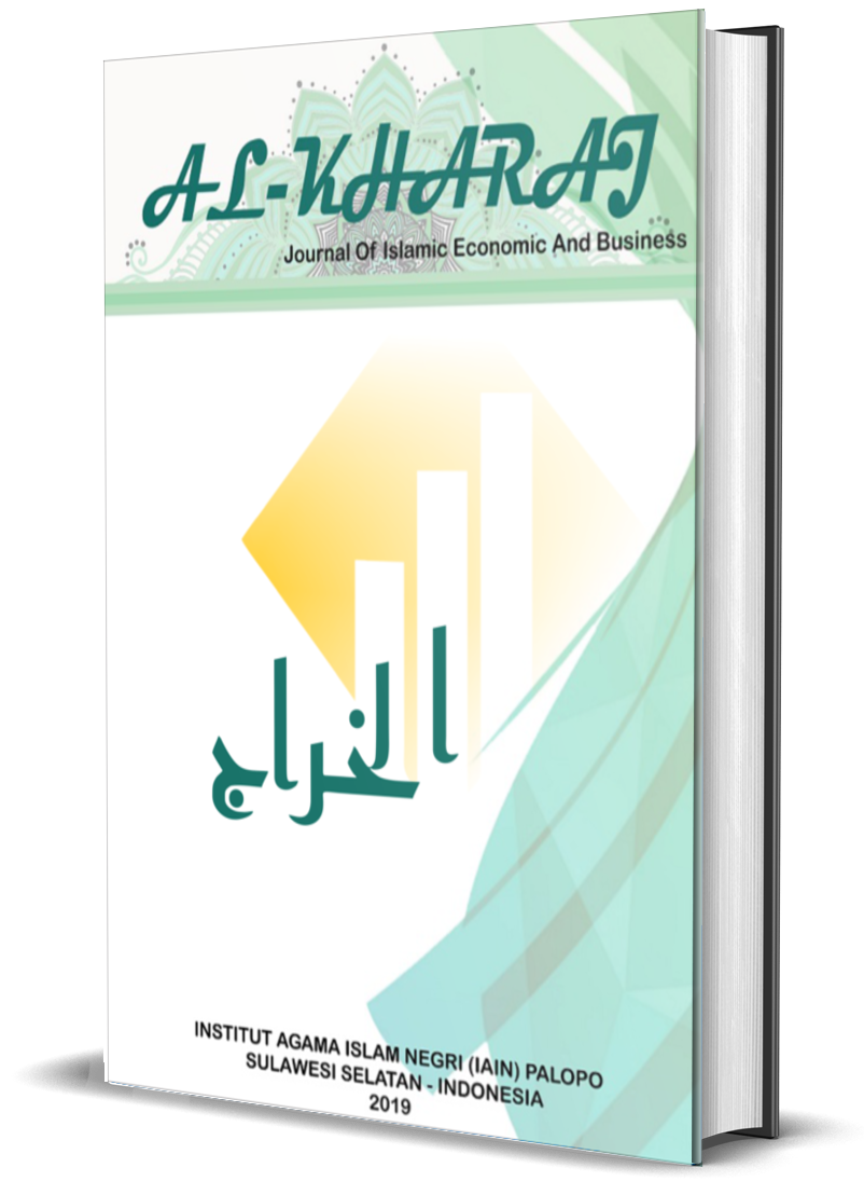The Importance of Sharia Business Ethics in Creating a Tolerant and Peaceful Economic Environment
DOI:
https://doi.org/10.24256/kharaj.v6i3.5447Keywords:
Sharia Business Ethics, Tolerance, Economic environmentAbstract
This study explores the importance of implementing Sharia business ethics in creating a tolerant and peaceful economic environment, especially in the context of a multicultural global society. Sharia business ethics offers universal principles such as justice, transparency, and fair conflict resolution, which focus not only on achieving economic profit but also on promoting social harmony and common welfare. By emphasizing the values of tolerance and diversity, which are integral parts of Islamic teachings, this study shows that implementing Sharia principles can have a significant positive impact on economic development. This implementation, if supported by education, training, and strengthening individual capacity, has the potential to create a stable, trustworthy, and inclusive business environment. In addition, Sharia business ethics can serve as a comprehensive guide in building a just, harmonious, and tolerant society. Thus, this study confirms that Sharia business ethics is not just a set of rules, but a comprehensive approach to achieving economic and social justice in a global society.
References
Adlini, M. N., Dinda, A. H., Yulinda, S., Chotimah, O., & Merliyana, S. J. (2022). “Qualitative Research Methods of Literature Study.” EDUMASPUL: Journal of Education, 6(1), 975-980.
Ayu, Dena, and Syahrul Anwar. 2022. "Islamic Economic Business Ethics in Facing Future Economic Challenges." Al-Mustashfa: Journal of Sharia Economic Law Research 7 (1): 52–61. https://doi.org/10.24235/jm.v7i1.10034.
Dahruji, and Arif Rachman Eka Permata. 2017. "Business Ethics in the Perspective of Islamic Economics: A Theoretical and Empirical Review in Indonesia." Journal of Islamic Economics and Finance 4 (1): 1–11.
Djunaeni, Moch Endang. 2015. "Sharia Business Ethics." Al-Amwal : Journal of Sharia Economics and Banking Studies 7 (1): 1–21.
Hasibuan, Armyn. 2020. "Islam is peaceful today and tomorrow." Administration: Journal of Da'wah Management FDIK IAIN Padangsidimpuan 2 (1): 109–30. http://jurnal.iain-padangsidimpuan.ac.id/index.php/Tadbir/article/view/2722.
Jaelani, Dian Iskandar. 2014. "Economic Empowerment of the Ummah in an Islamic Perspective (An Effort and Strategy)." EKSYAR: Journal of Sharia Economics & Islamic Business (e-Journal) 1 (1): 18–34. https://ejournal.staim-tulungagung.ac.id/index.php/eksyar/article/view/15.
Moh. Toriqul Chaer. 2016. "Islam and Peace-loving Education." Istawa: Journal of Islamic Education 2 (1): 73–94.
Nasution, Eza Okhy Awalia Br, Listika Putri Lestari Nasution, Minda Agustina, and Khairina Tambunan. 2023. "Economic Growth in an Islamic Perspective." Journal of Management and Creative Business 1 (1): 63–71. https://jurnaluniv45sby.ac.id/index.php/jmcbus/article/view/484/466.
NOOR, ATIKAH. 2023. "THE APPLICATION OF BUSINESS ETHICS IN CONDUCTING CV SALES TRANSACTIONS. PRINTING OF MEDAN IMAGES ACCORDING TO THE PERSPECTIVE OF ISLAMIC ECONOMIC ETHICS." Cemara Journal 1 (4).
Rahayu, Sri Ulfa, and Ernawati Bru Ginting. 2019. "The Prophet's Cooperation with Non-Muslims to Build the Welfare of the Ummah." Ushuluddin Journal 18 (1): 15.
Saifudin. 2021. "The Application of Islamic Business Ethics and Consumer Loyalty in the Business of Food Commodity Traders at Cikpuan Market, Pekanbaru City, Riau Province." Riau Islamic University.
Siri, R., & Rahmi, R. (2023). The Importance of Sharia Economy in Religious Moderation. Al-Kharaj: Journal of Islamic Economic and Business, 5(4). https://doi.org/10.24256/kharaj.v5i4.4701
Sofiandi, Dardiri Husni, Masbukin, and Zulkifli M Nuh. 2022. "Between Economy and Tolerance." Tolerance: Religious Communication Media 14 (2): 71–83.
Usman, Ilham. 2023. "Islam, Tolerance and Harmony of Interfaith Communities." Borneo : Journal of Islamic Studies 3 (2): 117–32. https://doi.org/10.37567/borneo.v3i2.1474.
Udin, A. F., Yahya, M., & Marjuni, K. N. (2023). Truth Of Scientific Philosophy Perspectives In The Development Of The Islamic Economy In The Age Of Globalization. Al-Kharaj: Journal of Islamic Economic and Business, 6(2). https://doi.org/10.24256/kharaj.v6i2.5103
Wajnah. 2023. "Religious Moderation in the Aspect of Tolerance." Madani: Multidisciplinary Scientific Journal 1 (10): 707–12. https://jurnal.penerbitdaarulhuda.my.id/index.php/MAJIM/article/view/1752/1799.
Downloads
Published
How to Cite
Issue
Section
Citation Check
License
Copyright (c) 2024 Rizka Nur Aulia, Salsabilah Ilmar Fandini, Rifqiyati Nur Fauzi, Rizal Maulana

This work is licensed under a Creative Commons Attribution-ShareAlike 4.0 International License.
Authors retain copyright and grant the journal right of first publication with the work simultaneously licensed under a Creative Commons Attribution-ShareAlike 4.0 International License. In line with the license, authors are allowed to share and adapt the material. In addition, the material must be given appropriate credit, provided with a link to the license, and indicated if changes were made. If authors remix, transform or build upon the material, authors must distribute their contributions under the same license as the original.









